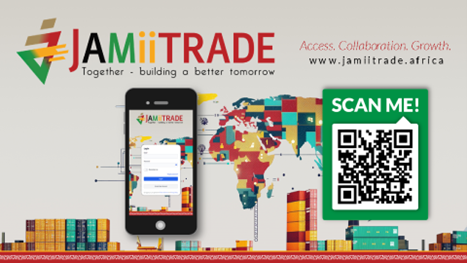How effectively measuring social impact leads to more profitable business strategies

There were many ‘aha moments’ at the Shared Value breakfast held at the JSE this March.
Only one caused the audience, a group of seasoned executives and entrepreneurs, to gasp audibly. It was when Christelle Kwizera, founder and CEO of Water Access Rwanda, told us that her initial fundraising was crowdfunded – and that she had crowdfunded $50 000 dollars in the matter of days.
That means that ordinary members of the public contributed a collective $50 000 towards building a startup that would supply clean water to communities in Rwanda.
The audience was full of questions. Why didn’t Kwizera seek government funding? What about philanthropic donations?
Well, donors wanted her to provide water for free. And sure, free clean water piped into every home in the community would be great. But as Kwizera pointed out, funding doesn’t last. You can get funding to build a big ambitious project, but then what?
Instead, Kwizera built a profit-driven business that was designed to fulfill a social need: clean, reliable water, easily accessible water at a price so low it’s affordable for the whole community.
Crucially, it fulfills that need in a sustainable way. In contrast to short-term donor-funded projects, Water Access Rwanda’s path to profitability is also its path to sustainability.
It’s a nice example of the Shared Value model doing what it does best. It’s also a reminder that Shared Value is about driving concrete, quantifiable outcomes.
How to measure Shared Value
For Water Access Rwanda, providing a consistent supply of clean water to communities that need it isn’t a nice incidental effect. It’s not just something to emblazon on the corporate brochure. It’s fundamental to whether the business is achieving its core outcomes.
One may be tempted to say that attention to achieving value is one thing for a dynamic startup built on Shared Value principles. What about larger established firms?
While entrepreneurs can move more nimbly, with fewer legacy restraints, large businesses are able to create substantial and significant social value; often precisely because of the scale at which those firms operate, and the concentration of skill and capacity inherent in a successful firm’s structures.
In a report co-written by Harvard Business School Professor Michael Porter, one of the principal theorists of the Shared Value movement, the authors stress that Shared Value requires an integrated approach. That is the key to driving profit and value.
While charitable CSR initiatives can have big positive impacts, such initiatives do not drive profit and are separate from the firm’s management strategy. Their effects are therefore limited are their sustainability is doubtful
By contrast, Shared Value is a management strategy that is incorporated into a firm’s KPIs.
Porter et al. list four strategic steps for measuring value:
- Identify the social issues to target
- Make the business case
- Track progress
- Measure results and use insights to unlock new value
The authors apply these to a number of case studies. Let’s consider one with particular relevance to us in Africa: a Shared Value initiative to reduce youth unemployment.
Here’s what happened:
- Coca Cola in Brazil performed research indicating that low-income youth struggled to find jobs because they lacked the relevant skills and there were insufficient opportunities.
- It was hypothesised that retailers would benefit from trainee assistance. Local youth received training in retail, business development and entrepreneurship, “while also pairing youth with a local retailer to get their first job experience and recommend ideas for improvement.”
- The number of youth and retailers participating was measured. Retailers’ performance was measured over time.
Last but certainly not least, what actual value was created by the initiative?
- The results speak for themselves: “Approximately 30 percent of the young people trained immediately land their first job with Coca-Cola or one of its partners, and at least 10 percent set up their own business with microcredit support from the company.”
Moreover, investment in each of these programmes turns profitable within two years.
Through rigorous measurement, a multinational giant like Coca Cola was able to identify a social need and bring profound change to the community in a sustainable, profitable way.
Importantly, the company worked with a local NGO partner, closely incorporating them into their value chain, rather than simply donating money without measuring the created value over time.
It’s a salient reminder that unlike most CSR initiatives, Shared Value is an ongoing process of measurement and refinement.
It’s an important reminder that measuring outcomes isn’t simply a mechanism to tell you whether or not your initiatives have been successful; it’s inherent to the process of creating Shared Value for all.
Further Reading: Measuring Shared Value: How to Unlock Value by Linking Social and Business Results, Michael E. Porter et al.
PepsiCo “Performance with Purpose” agenda, for example, includes measurable, time-bound company goals across specific key performance indicators (KPIs), such as reducing the average amount of sodium per serving in key global food brands in key countries by 25 percent by 2015. As an indicator of senior-level alignment to these objectives, PepsiCo’s CEO Indra Nooyi’s performance evaluation includes accountability for progress against the short- and long-term performance of the company as well as “Performance with Purpose” KPIs.
Christelle Kwizera
Water Access Rwanda
There is a public hunger
And realisation
But why didn’t
Seek government funding or philanthropic donation
Clean, efficient
Uninterrupted
And extremely affordable
How do you measure these effects
Due to travel restrictions and other precautions relating to COVID-19, the Shared Value Executive Programme at Strathmore University Business School, which had been scheduled for March 2020, has been postponed.
New dates will be announced soon, so watch this space.
In times of uncertainty, the Shared Value model is more vital than ever. This executive course is designed to equip you to drive profit while helping to build a better Africa.




